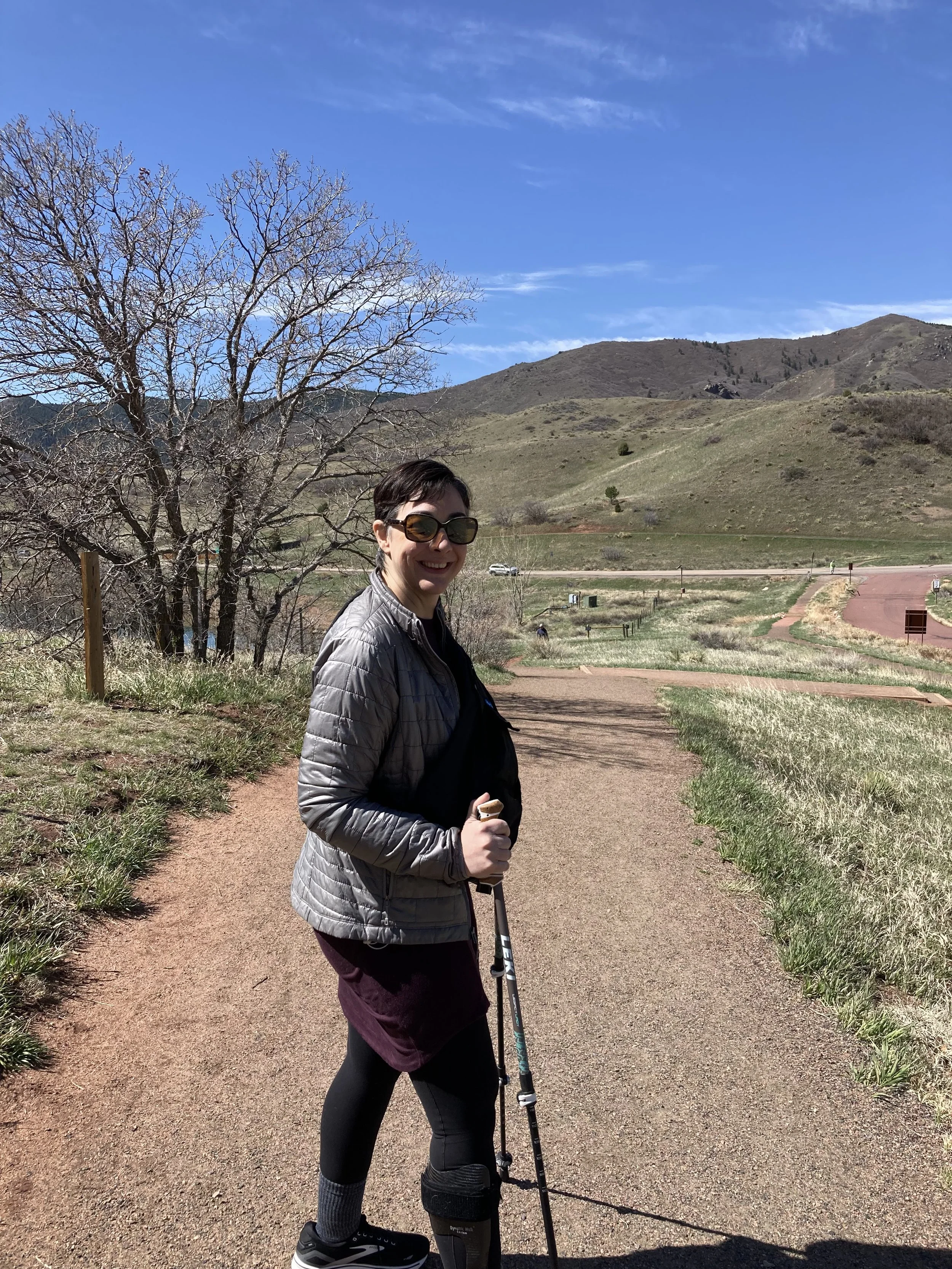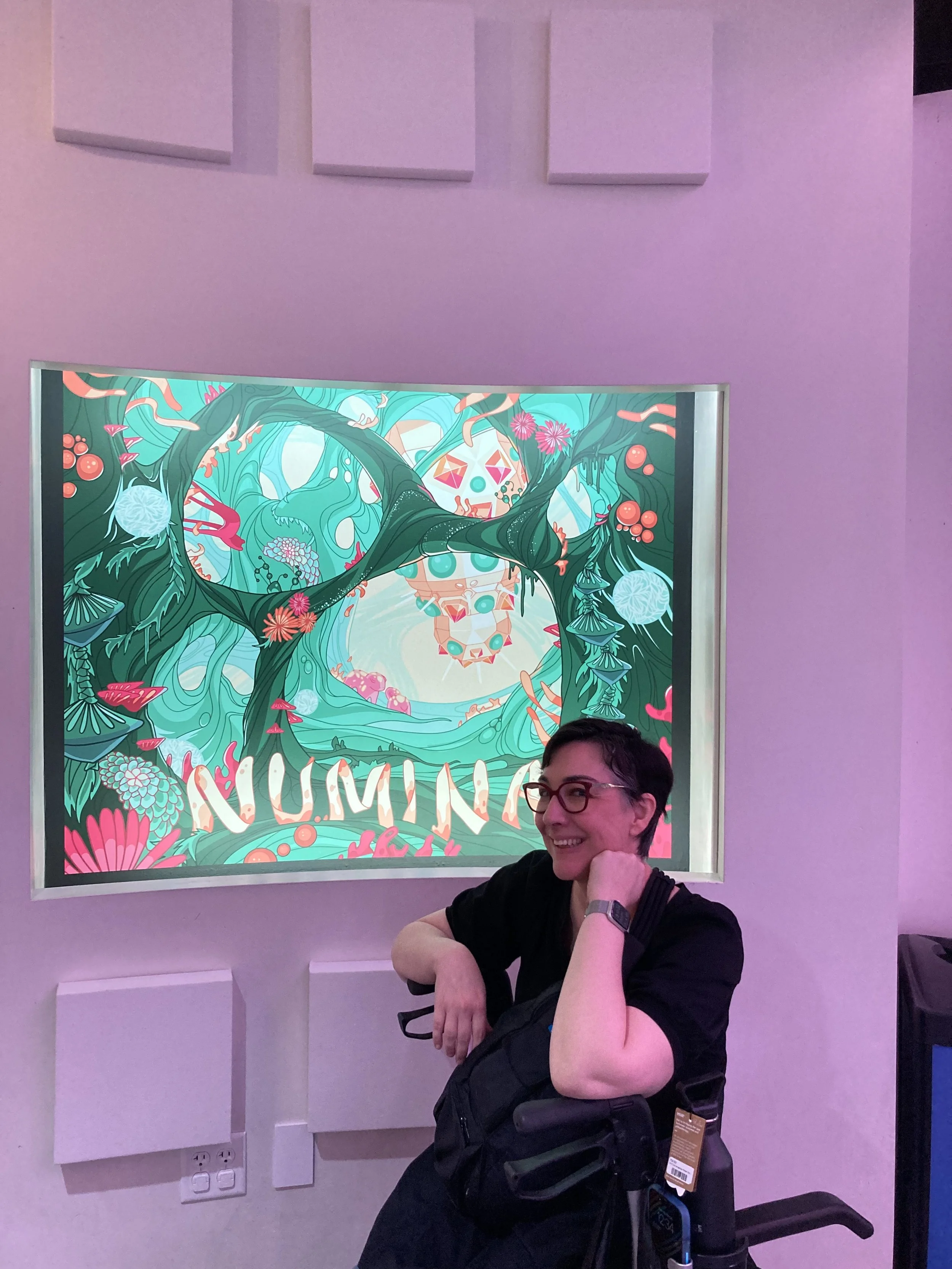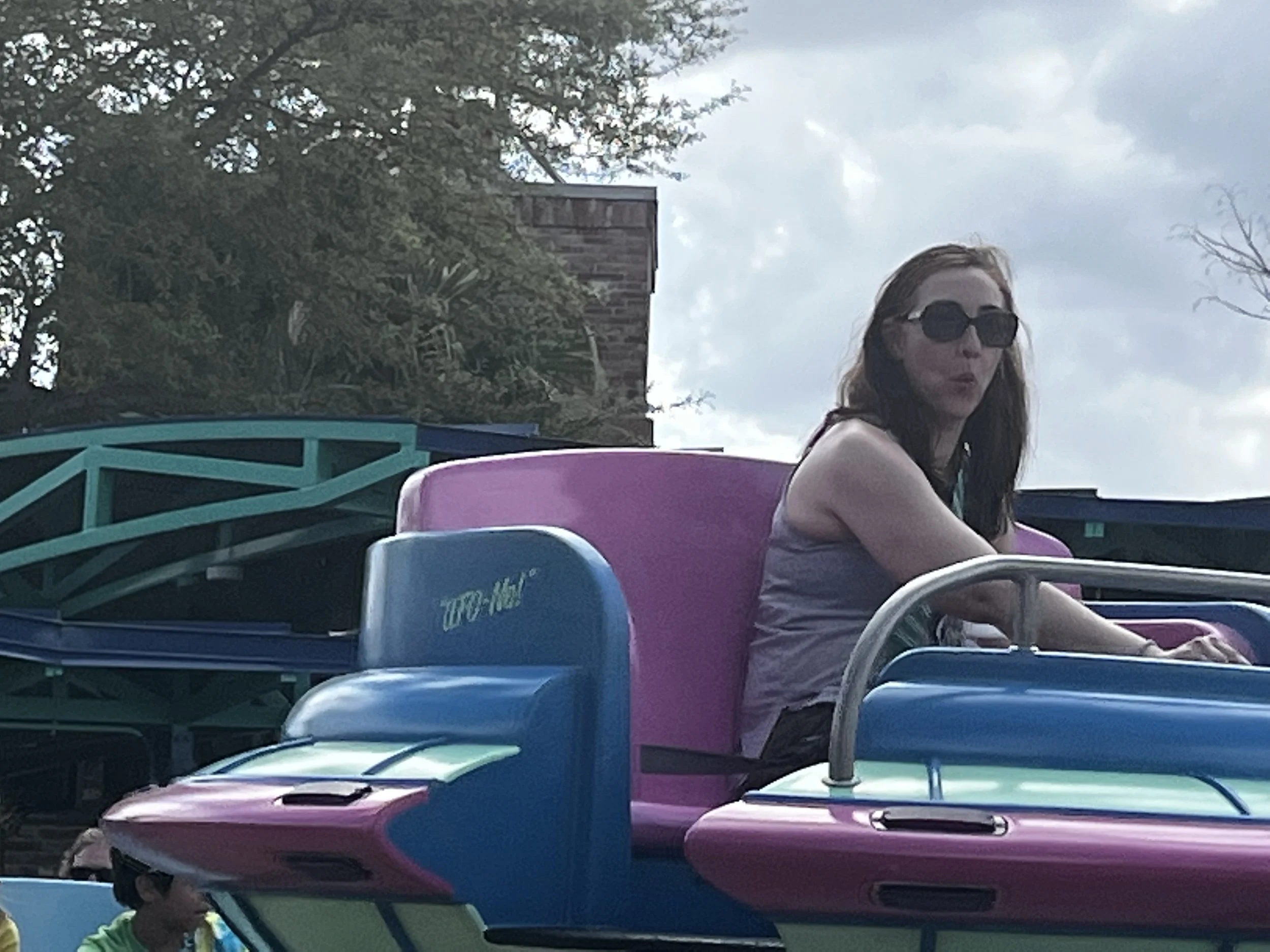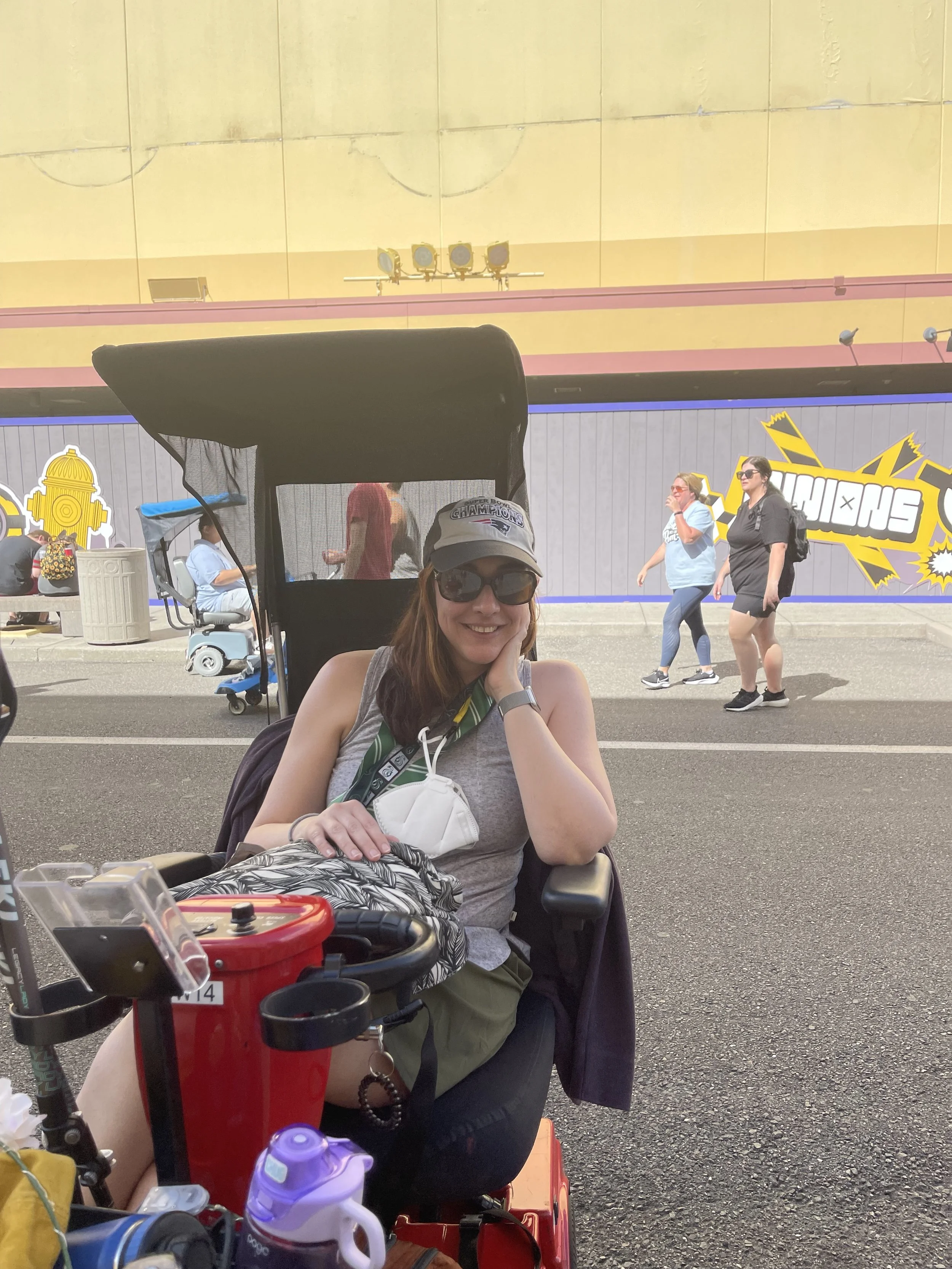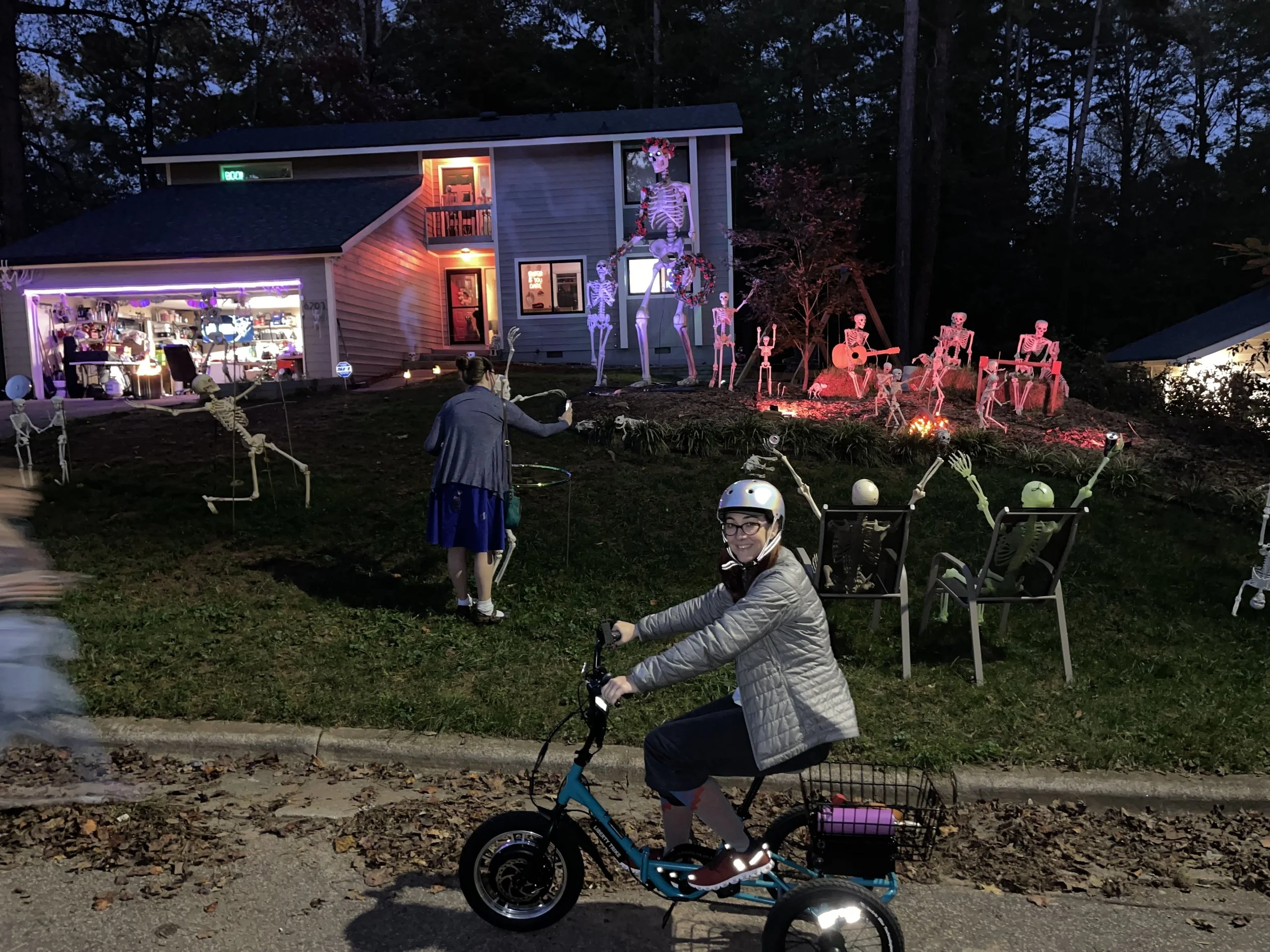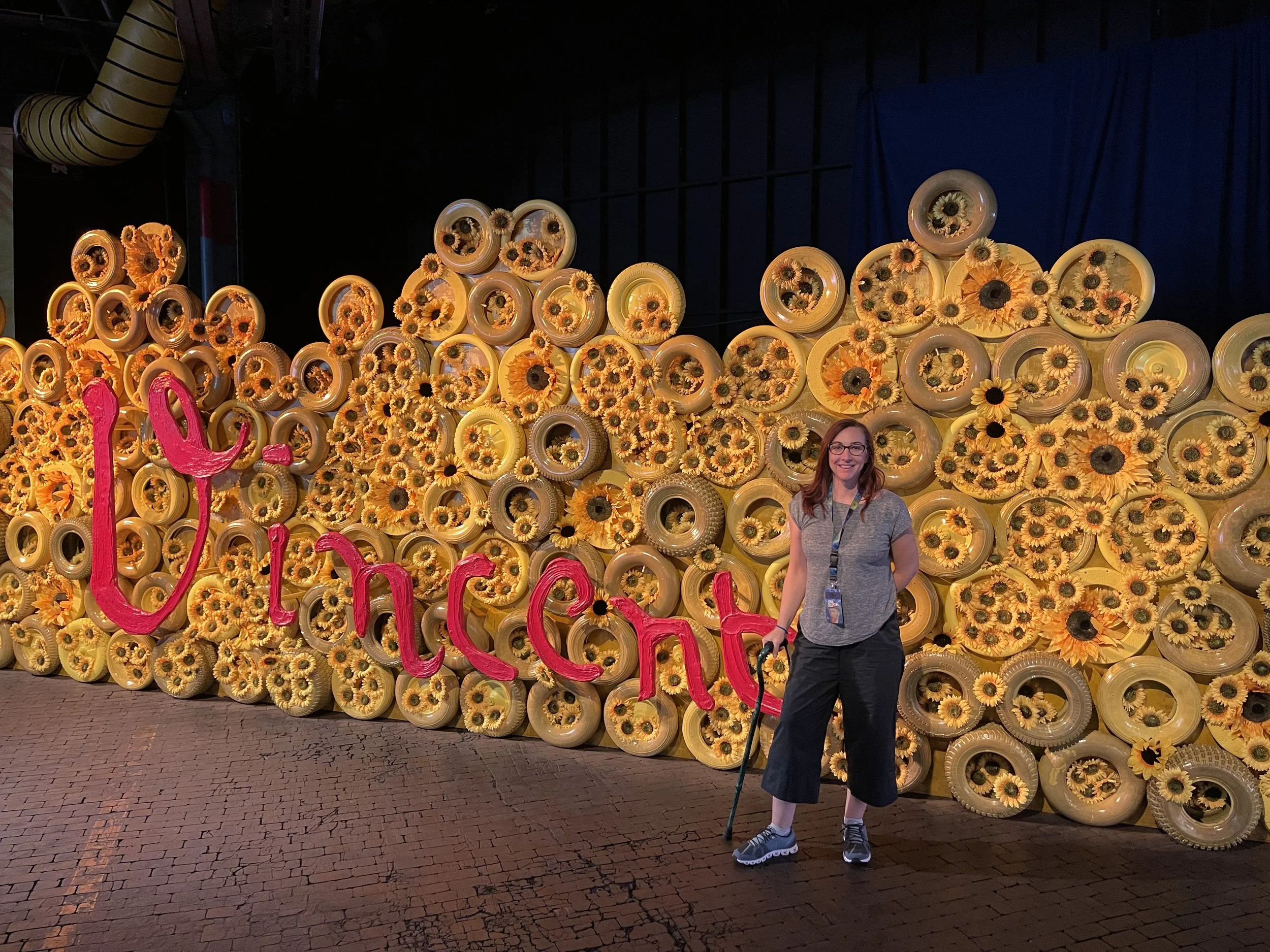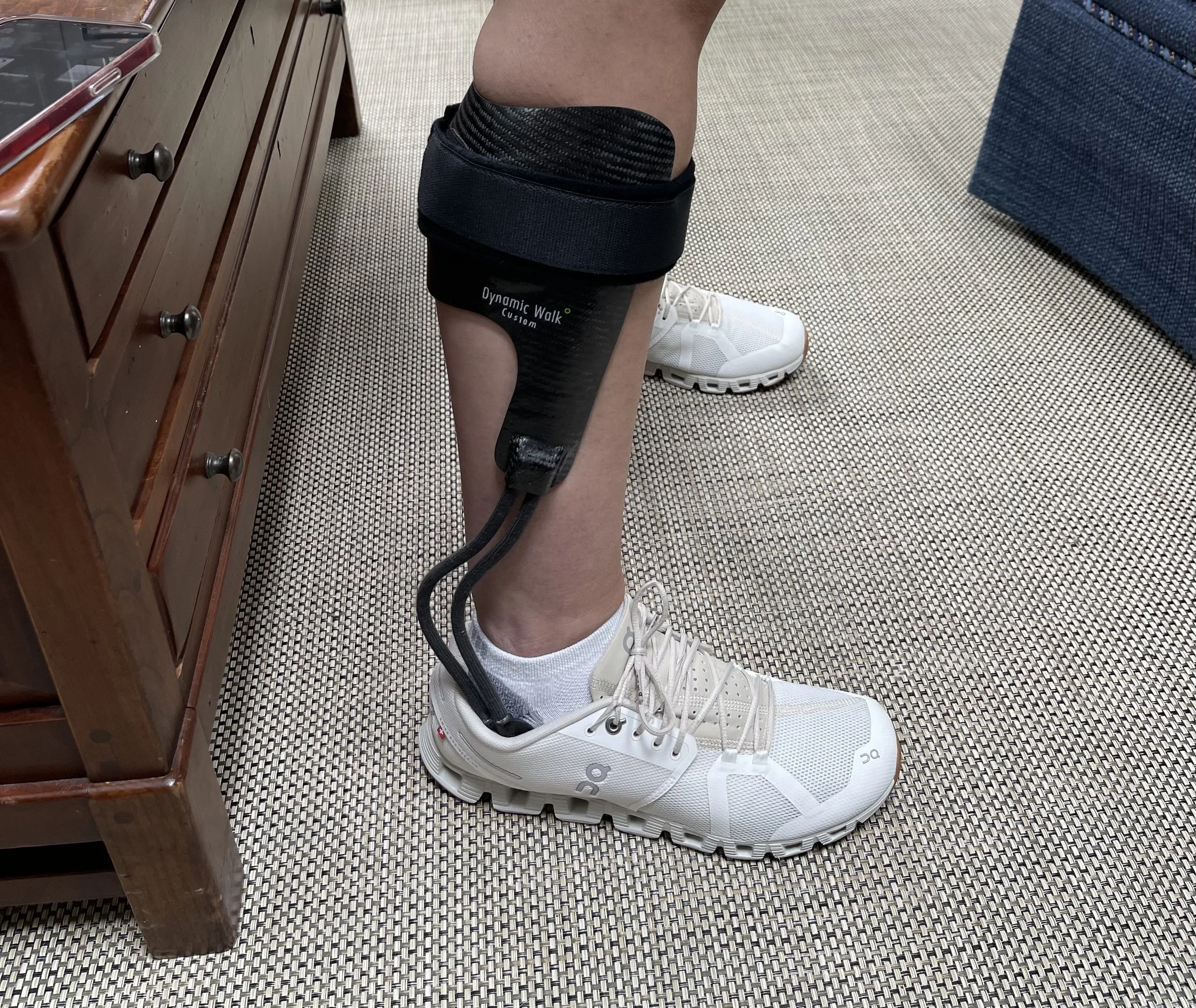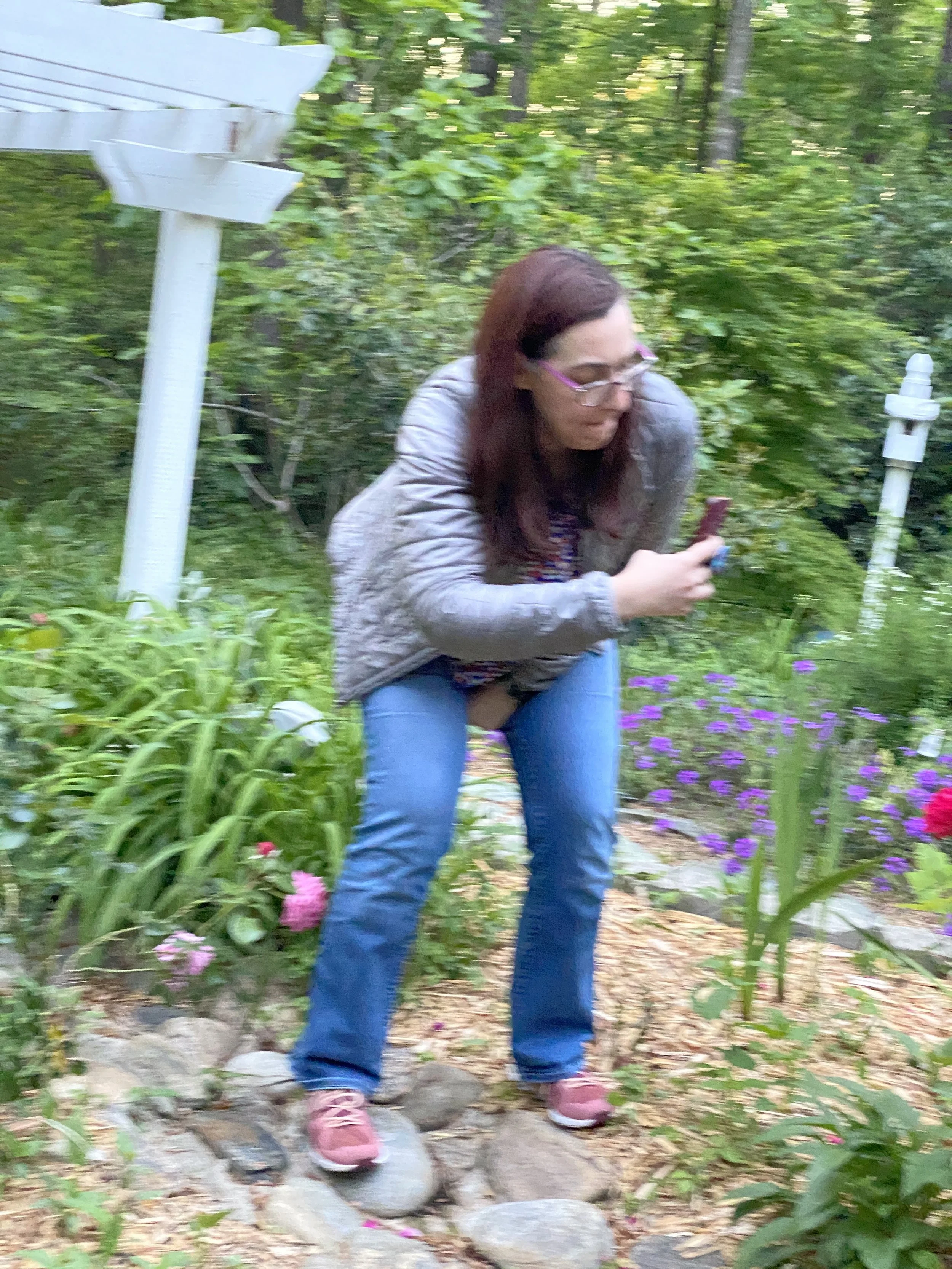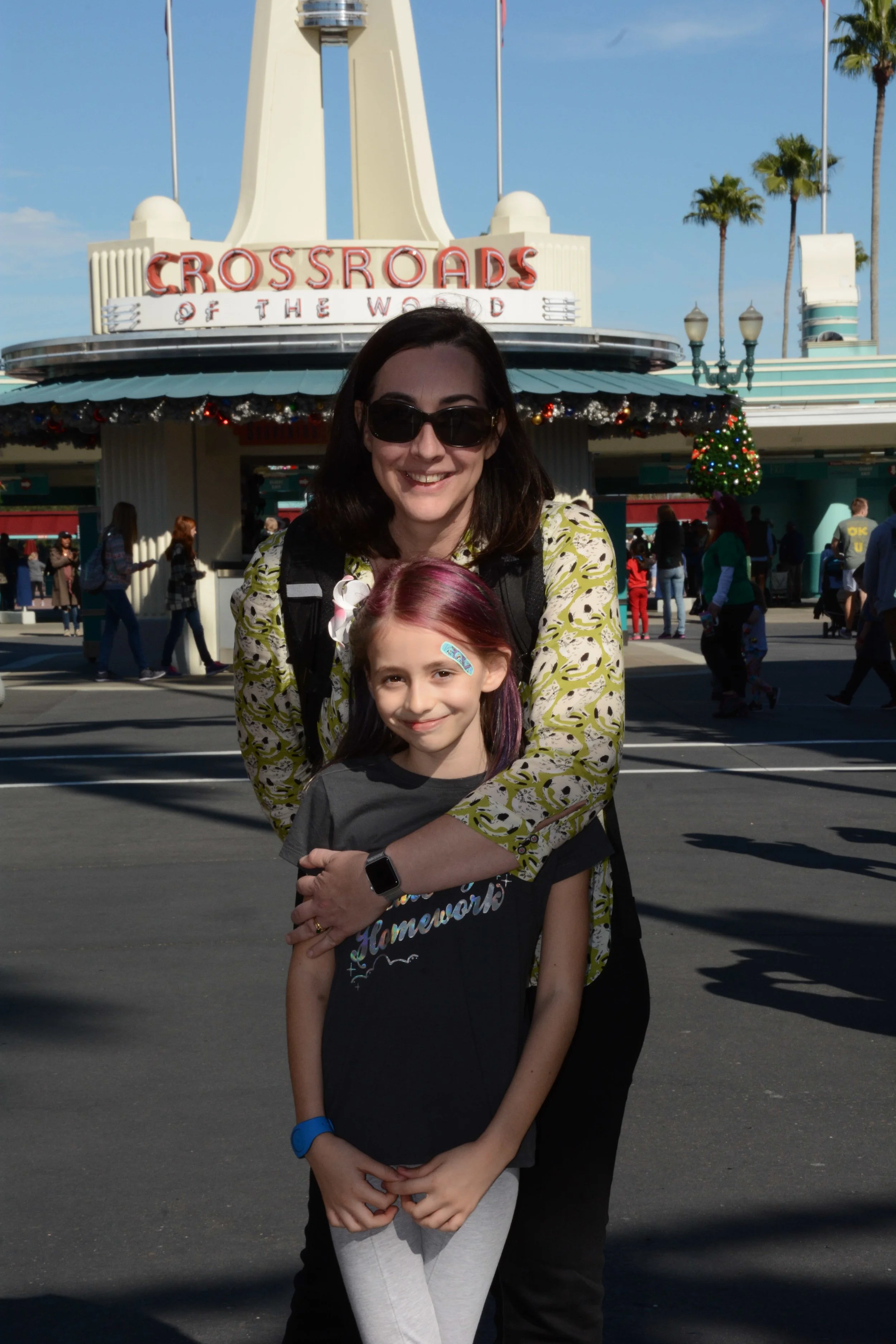Disability Pride Month
July is Disability Pride month. What does it mean to me? It’s not a celebration that I have a disability because having one sucks, but there’s also nothing I can do about it. Rather, it’s a time to create awareness for our community, discuss the ways that things in the world impact me and how they could be more inclusive, and advocate for understanding and change.
Before I was diagnosed with Multiple Sclerosis I wasn’t interested in the disabled experience and how people with different disabilities were impacted in their personal and professional lives. I know lots of people that are like this, and while most of the people in my orbit these days know that I have a chronic illness and disability, they don’t understand it. I have had friends and colleagues acknowledge that they didn’t know that something was a problem until I pointed it out. I won’t go into how to be an ally because there are books and resources that are available that talk about that more specifically that I have linked below.
What I will talk about is my experience, the challenges I’ve had, how I react to certain interactions, and the things that I worry about.
From a personal perspective, one of my biggest challenges is asking for and accepting help. I was raised in a stoic family where we are responsible for ourselves–asking for help was a sign of weakness in my eyes. Hoo boy, did that need to change. I remember when I first started having my “diagnosing” symptom, the inability to use my right leg to walk long distances, and this was before I knew what was going on. I was taking an art workshop, and I had rented a place about a few blocks away thinking that I would walk to the workshop each day. It wasn’t possible. And then, I met some people for dinner one night, and I had to park and walk a few blocks. It was hard, and I shouldn’t have done it, And I did, and I didn’t say anything about it. I do now, and that was one thing that the actual diagnosis helped me with–the knowledge that there was in fact a reason I was having difficulty walking long distances. It freed me up to ask for accommodations.
I say some because it is still hard to ask for and accept help. I was in my pottery class the other night, and I was getting my clay to take to my table. Let me tell you, clay can be really heavy. I was planning on getting it myself when someone asked if they could carry it for me. I was both reluctant and thankful for the offer. I accepted because I know that person just a little bit, and that made it easier. At the end of the night, one of my classmates offered to take pottery to my car for me and another offered to open the door. I didn’t know them at all. And each time I said no, I’m okay, I’ve got it. And that’s part of the challenge. I know I CAN do it, but I don’t have to. I can accept help from others, and that’s okay. It’s not a weakness. It doesn’t make me less valid.
But the looks from strangers can make me feel that way. The first time I had a scooter to run around a hotel on vacation, people looked at me with pity or like I was diseased or worse that I was too young to be on a scooter. When people see me with my cane or walking sticks, they tell me about their knee surgery or ask how my recovery is going. I explain that this is my normal, and they tell me they’re sorry. I really hate that. Because it feels like pity from a complete stranger, and that’s not what I need. But what else do I expect them to say? It’s the norm to say you’re sorry. I guess what would be better is to not say anything in the first place. I mean, I get it. But, there are some people who you see and interact with often enough that may ask, but it’s like the people outside of the restaurant who I’ll never see again who ask. Don’t do that. Just treat me like any other human being. The ones who you ignore or maybe give a random compliment to. I just want to interact with the world as a human being.
And that’s what I worry about, that ability to interact with the world. I recognize the bias that comes with a disability when applying for a job. The question is do you say something or not, what will HR do, what will the manager do, how does it impact your ability to get a job. And people with chronic illnesses and disabilities may not disclose because they need the money and need health insurance more than they need an inclusive workplace. I hate that too, and some much of that bias comes from a lack of understanding and fear. Being “other” is scary.
I also worry about going to new places because I don’t know how much I need to walk, if there is a railing on the stairs or if there is an elevator that can be used. There is always a mental calculus that I’m doing in my head to determine how much I want to do something and if the potential effort is worth it. I recently traveled to two separate locations for vacation. I relied on the pictures to see how big of a lip there was for the shower and if there was a grab bar. And these places weren’t found through big mega companies. But when I was traveling for work, the preference was for a Marriott hotel. Guess what, they don’t show if they have accessible rooms on their websites. You have to call, and that is time and effort.
There are many things that require additional time and effort–the airport, hotels, doctors, health insurance, and the list goes on. I call that the disability tax. It shows up in the form of money and time. Financially speaking, you tip the people in the airport that push your wheelchair, you buy additional gear, like canes, wheelchairs, shoes, etc. Insurance doesn’t cover as much as you think. I’m concerned that the people that need something have to pay extra for it, and they may not be able to afford it because they don’t have a job, need fewer hours, or have limited income because they’re on disability.
From a time perspective, you’re tracking down insurance questions, making doctor appointments, sending in questions, juggling all the different needs and spending the time to be an advocate for yourself and making sure that everything is approved or filed correctly or that the doctor has sent in the appropriate paperwork, and more. and those same people are at risk for prejudice and bias. It can be a full time job managing your health, and balancing that time and effort with everything else is challenging.
So, let’s do better. Take some time to learn more, do your best to be an ally, and ask questions if you don’t know. Just be ready if someone doesn’t want to answer and be okay with that. Approach the world with kindness and empathy.
Additional Places to Find Information
Disability Pride Month Reading from NC State
University of Minnesota Reading List on Disability and Higher Education


